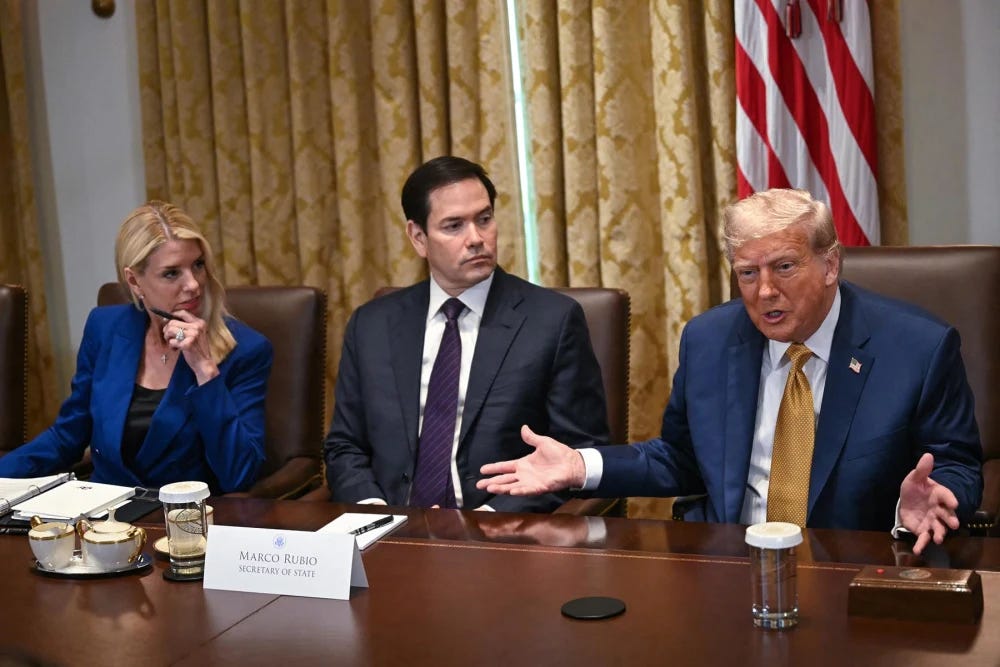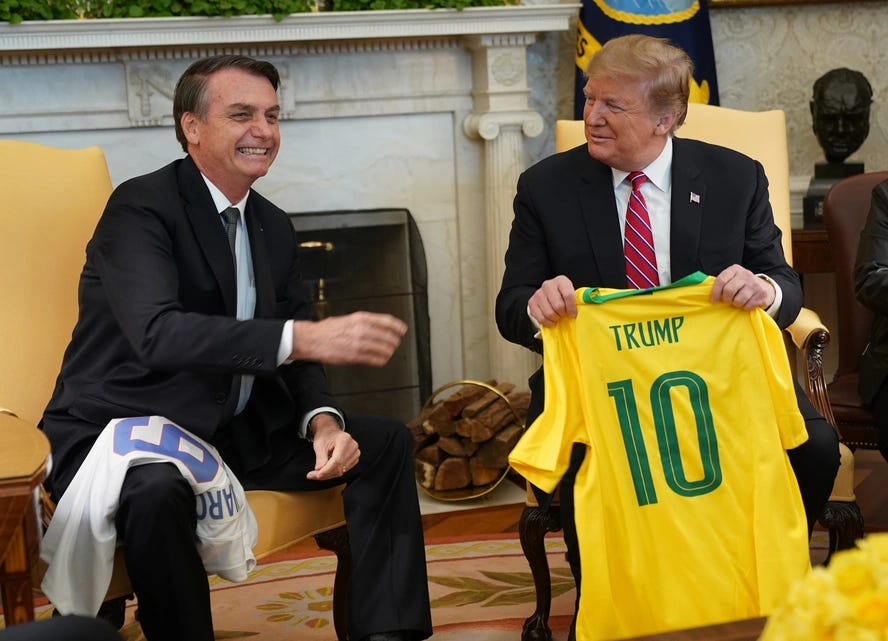Trump Week 25: Immigration Rollbacks, Tariff Threats, and a Planned Parenthood Court Block
Judge halts part of Trump’s new law as the administration alters immigration protections, federal jobs, and foreign trade.

Trump’s 25th week in office brought key developments in court rulings, immigration policy, and the ongoing trade war. A federal judge blocked the Trump administration from revoking Medicaid funding for Planned Parenthood, temporarily freezing a portion of the “One Big Beautiful Bill” just days after the president signed it into law. The Supreme Court later allowed the administration to move forward with its plan to downsize the federal government, including the dismissal of federal employees.
Amid continued anti-immigrant sentiment, the Department of Homeland Security (DHS) ended Temporary Protected Status (TPS) for more than 76,000 Hondurans and Nicaraguans who have lived in the United States since Hurricane Mitch in 1999. A previous report from The Introspective detailed the administration’s move to end TPS protections for over 530,000 immigrants from Cuba, Haiti, Nicaragua, and Venezuela.
As trade tensions continue, President Trump announced a 50% tariff on all copper imports—set to take effect Aug. 1—while threatening a similar tariff on Brazilian goods.
Court Rulings
A federal judge temporarily blocked the Trump administration from revoking Medicaid funding for Planned Parenthood, halting a portion of the sweeping spending bill. The ruling came in response to a lawsuit filed by Planned Parenthood.
“Many Planned Parenthood members will be required to lay off staff and curtail services, with serious adverse consequences for the many patients served at those centers even if they do not use Medicaid to access services. Worse still, members may be forced to shutter a substantial number of their health centers nationwide, many of which are in rural or underserved areas without alternative providers,” the lawsuit read.
The temporary restraining order will remain in effect for 14 days and directs the Department of Health and Human Services to “take all steps necessary to ensure that Medicaid funding continues to be disbursed” to Planned Parenthood.
In a statement, Susan B. Anthony Pro-Life America, a group opposing abortion, criticized the lawsuit and defended the legislation, claiming the “One Big Beautiful Bill” cut off funding to the “abortion industry.”
“As Planned Parenthood doubles down on lawfare and abortion politics, they prove exactly why the One Big Beautiful Bill is a historic victory for the people, stopping half a billion dollars in forced taxpayer funding of the corrupt abortion industry for the first time,” the statement read.
“Planned Parenthood's desperation is showing as they run to the courts again to fix a crisis of their own making.”
Meanwhile, the Supreme Court allowed the Trump administration to proceed with its ongoing downsizing of the federal government, permitting officials to enforce a February executive order that directed agencies to carry out “reductions in force.”
Immigration
As anti-immigrant sentiment continues, the DHS announced that TPS status for immigrants from Honduras and Nicaragua would be revoked, ending protections for more than 76,000 people.
“Temporary Protected Status was designed to be just that—temporary,” Homeland Security Secretary Kristi Noem said in a press release.
“It is clear that the government of Honduras has taken all of the necessary steps to overcome the impacts of Hurricane Mitch, almost 27 years ago. Honduran citizens can safely return home, and DHS is here to help facilitate their voluntary return. Honduras has been a wonderful partner of the Trump administration, helping us deliver on key promises to the American people. We look forward to continuing our work with them.”
In an interview with CBS News, Sen. Catherine Cortez Masto, criticized the decision, saying it would separate families and hurt businesses.
“These families have been here since the 1990s, working hard and contributing to our state and country for decades,” she said.
“Sending innocent families back into danger won’t secure our border or make America safer.”
A previous Introspective report highlighted the Trump administration’s move to end TPS protections for 530,000 immigrants from Cuba, Haiti, Nicaragua, and Venezuela.
Trade
With the trade war ongoing, President Trump announced a 50% tariff on copper, set to take effect on Aug. 1.
“I am announcing a 50% TARIFF on Copper, effective August 1, 2025, after receiving a robust NATIONAL SECURITY ASSESSMENT,” Trump wrote on Truth Social.
“Copper is necessary for semiconductors, aircraft, ships, ammunition, data centers, lithium-ion batteries, radar systems, missile defense systems, and even hypersonic weapons, of which we are building many. Copper is the second most used material by the Department of Defense.”
According to data from the U.S. Geological Survey, copper is the third most used metal globally—behind iron and aluminum—with most U.S. imports coming from Chile, Canada, and Mexico.
At the same time, Trump announced plans to impose a 50% tariff on Brazilian goods—the highest tariff imposed on any nation since the trade war began in April.
“In addition, we have had years to discuss our trading relationship with Brazil and have concluded that we must move away from the longstanding and very unfair trade relationship engendered by Brazil’s tariff and non-tariff policies and trade barriers. Our relationship has been, unfortunately, far from reciprocal,” Trump said in a statement on Truth Social, addressing current Brazilian President Luiz Inácio Lula da Silva.
He added, “The way Brazil has treated former President Bolsonaro ... is an international disgrace. Please understand that the 50% number is far less than what is needed to have the level playing field we must have with your country.”

Former President Jair Bolsonaro is currently facing charges alleging that he plotted to overturn his 2022 election loss.
In a response posted on X, President Lula called Trump’s claims “inaccurate” and said the increased tariffs “will be addressed in accordance with Brazil’s Economic Reciprocity Law,” while also condemning Trump’s comments regarding Bolsonaro.
“Brazil is a sovereign nation with independent institutions and will not accept any form of tutelage,” Lula wrote.
“The judicial proceedings against those responsible for planning the coup d’état fall exclusively under the jurisdiction of Brazil’s judicial branch and, as such, are not subject to any interference or threats that could compromise the independence of national institutions.”
According to research from the Office of the United States Trade Representative, Brazil was the 18th-largest source of U.S. imports last year, with $42 billion worth of goods entering the country.




